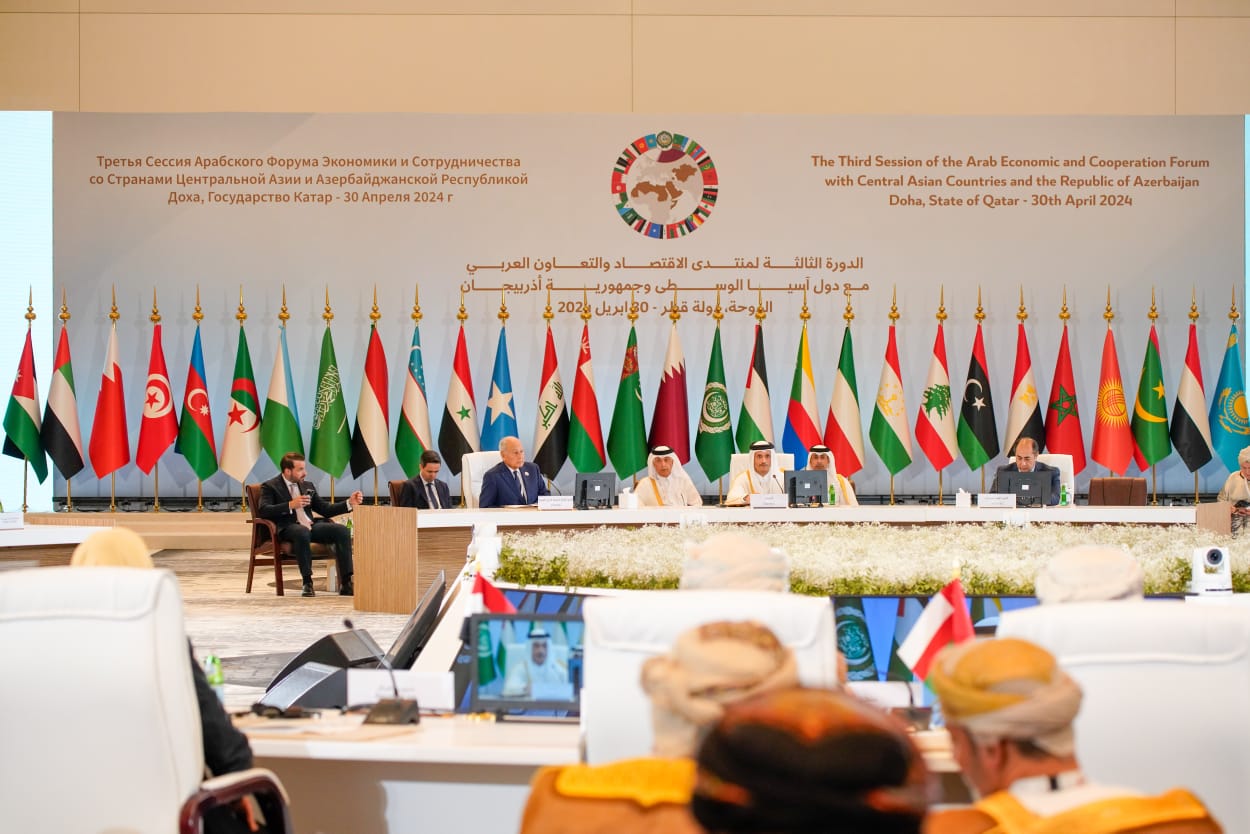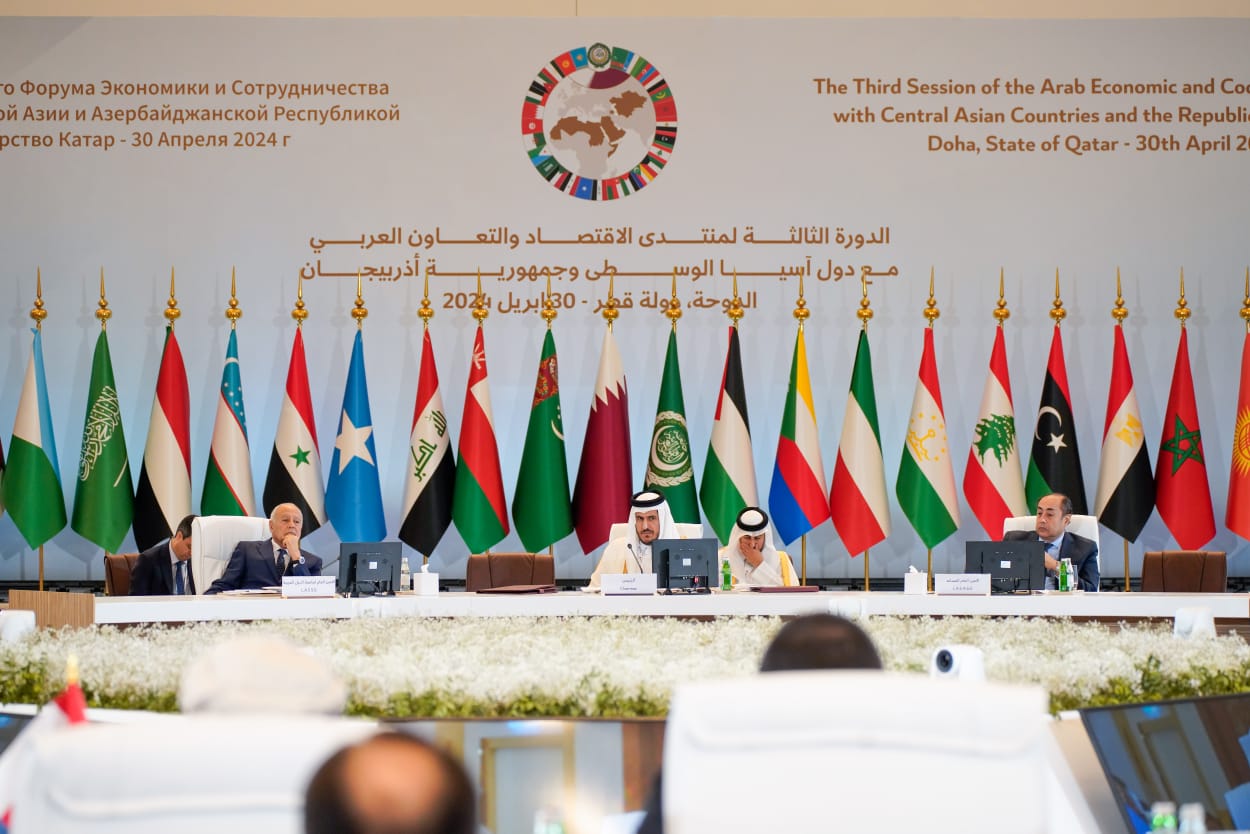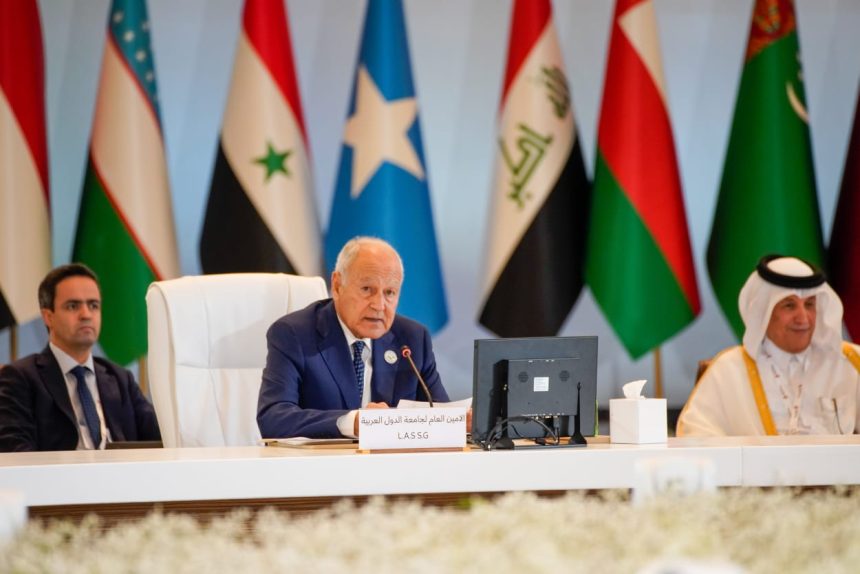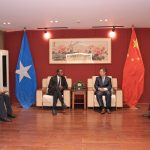The 3rd session of the Arab Economic and Cooperation Forum with Central Asian countries and the Republic of Azerbaijan concluded in Doha, Qatar. The forum, which saw the participation of foreign ministers from Arab nations, Azerbaijan, Uzbekistan, Tajikistan, Turkmenistan, the Kyrgyz Republic, Kazakhstan, and the Secretary General of the Arab League, Mr. Ahmed Aboul Gheit, culminated in the Doha Declaration—a document portraying the collective stance on various geopolitical and economic issues.
Key Highlights of the Doha Declaration:
- Investment Programs: The declaration sets the stage for future investment programs aimed at bolstering Arab cooperation with Central Asian countries and Azerbaijan.
- Kuwait’s Role: It acknowledges Kuwait’s initiative to host the upcoming strategic dialogue between the Gulf Cooperation Council (GCC) and Central Asian countries in 2025.
- Economic Prospects: The declaration reiterates the historical, religious, and cultural connections between the regions and highlights the economic potential stemming from natural resources and diverse sectors.
- Political Solutions: It calls for consensual political solutions to address crises in the Arab world, promoting dialogue and national reconciliation.
- Palestinian Cause: The declaration denounces the Israeli occupation’s actions against Palestinians and advocates for an international peace conference to resolve the conflict.
- Support for Azerbaijan-Armenia Normalization: It endorses the ongoing normalization process between Azerbaijan and Armenia, emphasizing the need for a peace treaty and addressing the landmine threat.
Stance on Somalia:
The declaration included several points affirming support for Somalia’s sovereignty:
- The ministers opposed any external interference in national affairs, upholding the principles of the United Nations and international law.
- They backed Somalia’s efforts to safeguard its independence and territorial integrity, as outlined in the United Nations Charter and the Arab League Charter.
- The ministers fully supported the Somali government’s rejection of the agreement signed by Ethiopia and the “Somaliland” administration on January 1, 2024.
- They labeled the agreement as a blatant violation of international law and a threat to regional peace and stability.
- The ministers disapproved of the agreement and any resulting legal, political, commercial, and military actions, calling for global condemnation and rejection.
- They also denounced attempts to leverage the agreement to alter the political landscape in the Gulf of Aden, Somalia’s coastline, and the Red Sea, citing security concerns for Arab nations and regional movement.
The Doha Declaration serves as a pivotal moment in international diplomacy, reinforcing the collective commitment of Arab and Central Asian countries to uphold the principles of sovereignty and territorial integrity. The unequivocal support for Somalia’s stance against the Ethiopia-Somaliland agreement reflects a broader consensus on respecting national borders and fostering regional stability.
This declaration not only strengthens Somalia’s position on the global stage but also sets a precedent for international cooperation based on mutual respect and adherence to international law. As the world watches, the impact of this solidarity will undoubtedly resonate across diplomatic circles, potentially shaping future geopolitical landscapes.









